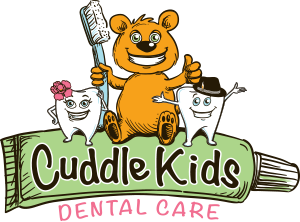
General Anesthesia Services
IN FORT WORTH, TX
Sedation can help increase cooperation and reduce anxiety and/or discomfort associated with dental treatment. Various medications can be used to sedate a child; medicines will be selected based upon your child’s overall health, level of anxiety, and dental treatment recommendations.
Once the medications have been administered, it may take up to an hour before your child shows signs of sedation and is ready for dental treatment. Most children become relaxed and/or drowsy and may drift into a light sleep from which they can be aroused easily. Unlike general anesthesia, sedation is not intended to make a patient unconscious or unresponsive. Some children may not experience relaxation but an opposite reaction such as agitation or crying. These also are common responses to the medicines and may prevent us from completing the dental procedures. In any case, our staff will observe your child’s response to the medications and provide assistance as needed.
You, as parent/legal guardian, play a key role in your child’s dental care. Children often perceive a parent’s anxiety which makes them more fearful. They tolerate procedures best when their parents understand what to expect and prepare them for the experience. If you have any questions about the sedation process, please ask. As you become more confident, so will your child. For your child’s safety, you must follow the instructions below.
Prior to your child’s sedation appointment:
• Please notify our office of any change in your child’s health and/or medical condition. Fever, ear infection, nasal or chest congestion, or recent head trauma could place your child at increased risk for complications. Should your child become ill just prior to a sedation appointment, contact our office to see if it is necessary to postpone the sedation.
• Tell us about any prescribed, over-the-counter, or herbal medications your child is taking. Check with us to see if routine medications should be taken the day of the sedation. Also, report any allergies or reactions to medications that your child has experienced.
• Food and liquids must be restricted in the hours prior to sedation. Fasting decreases the risk of vomiting and aspirating stomach contents into the lungs, a potentially life-threatening problem. We will not proceed with the sedation if you do not comply with the following requirements.
• Dress your child in loose-fitting, comfortable clothing. This will allow us to place monitors that evaluate your child’s response to the medications and help ensure your child’s safety. These monitors may measure effects on your child’s breathing, heart rate, and blood pressure.
• Try not to bring other children to this appointment so you can focus your attention on your child undergoing the sedation.
• If you will be traveling home by automobile or if you must bring any other children with you to this appointment, it is preferable to have two adults accompany the patient home. On the way home, one individual should be able to observe the child’s breathing without any distractions, especially if the patient falls asleep while in the car or safety seat.
During the sedation appointment:
• If any sedative medications are administered before your child is taken to the treatment room, we will ask you to watch your child closely as he/she may become sleepy, dizzy, unsteady, uncoordinated, or irritable. You will need to remain next to your child to prevent injuries that may occur from stumbling/falling. Keeping your child calm but distracted from the unfamiliar surroundings often is helpful.
• You, as the child’s parent/legal guardian, must remain at the office throughout the sedation appointment. You may not leave the office for any reason.
• The doctor and staff will evaluate your child’s health status before he/she will be discharged home. Children recover from effects of sedatives at different rates so be prepared to remain at our office until the doctor has determined your child is stable and the after-effects are minimal. At discharge, your child should be responsive but may be drowsy, crying, or fussy.
After the sedation appointment:
• Once home, your child will still be drowsy and must remain under adult supervision until fully recovered from the effects of the sedation. If your child wants to sleep, position your child on his/her side with the head supported and the chin up. During this period, check your child’s breathing and airway every three to five minutes. If your child is snoring, reposition the head until the snoring disappears and your child breathes normally. If breathing becomes abnormal or you are unable to arouse your child, contact emergency services (call 911) immediately.
• Nausea and vomiting are occasional side effects of sedation. If vomiting occurs, immediately clear the material from your child’s mouth. Once again, be sure that breathing is normal. If breathing becomes abnormal or you are unable to arouse your child, contact emergency services (call 911) immediately. If vomiting persists for 20 to 40 minutes, contact our office immediately.
• Your child may be drowsy for some time after the sedation appointment. Restrict activities for the remainder of the day. Prohibit potentially harmful activities such as bike riding, swimming, using playground equipment, or any activity where balance is important.
• In addition to the sedative medications, we often use local anesthetic to numb the mouth during dental treatment. The numbness usually lasts two to four hours. Watch to see that your child does not bite, scratch, or injure the cheek, lips, or tongue during this time.
• Children may be irritable after treatment. If this occurs, stay with your child and provide a calm environment. If you believe the irritability is caused by discomfort, you may give your child acetaminophen (Tylenol®) or ibuprofen (Advil®, Motrin®). Follow the instructions on the bottle for dosing based upon your child’s age/weight.
• Once your child is alert, you may give him/her sips of clear liquids to prevent nausea and dehydration. Small drinks taken repeatedly are preferable to large amounts. The first meal should be something light and easily digestible (e.g., apple sauce, soup, Jell-O®). Do not give fatty or spicy foods (e.g., milk, cheese, yogurt, French fries, tacos, salsa).
• A slight fever (temperature to 100.5° Fahrenheit) is not uncommon after sedation. You may give your child acetaminophen (Tylenol®) or ibuprofen (Advil®, Motrin®). Follow the instructions on the bottle for dosing based upon your child’s age/ weight. Because dehydration may cause a slight increase in temperature, clear fluids may help correct this condition. If a higher fever develops or the fever persists, call our office.
• Please feel free to call the office for any questions or concerns that you might have.
Source: AAPD
